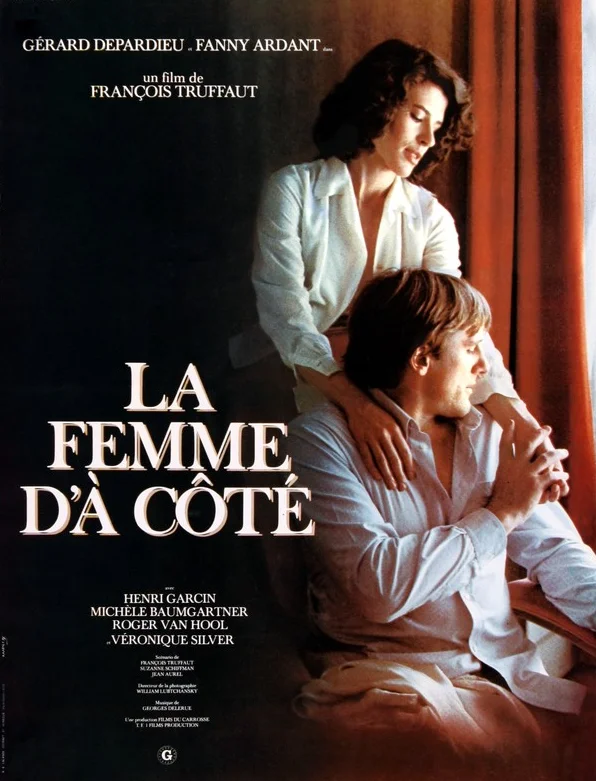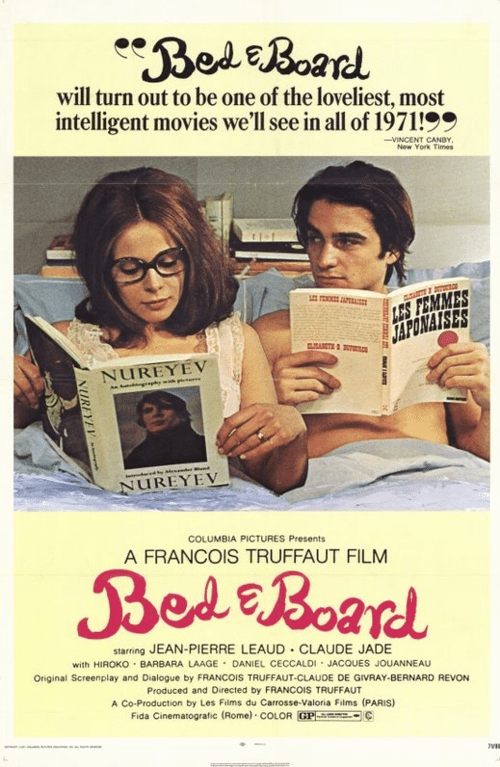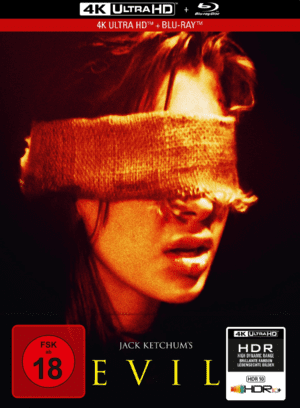Story Movie
Bernard Coudret is an exemplary family man living in the suburbs of Grenoble with his loving beautiful wife and young son. Their orderly provincial life runs its course, until one fateful day in the house next door do not move in Philippe and Mathilde Bouchard. In the latter, Bernard recognizes the woman with whom he had a stormy affair seven years earlier.
Review 4K Movie
Two gray brick houses stare at each other with holes in the windows from under half-closed shutters, like a pair of venerable dinosaurs falling asleep through the blinking web of their eyes, and this dull landscape seems as far from the riot of passions as Oymyakon or the Volga steppes are from the carnival ecstasy of Rio de Janeiro. The center of the local universe is the tennis club. The conversations that take place on its sidelines and flow through the arteries of telephone wires, only guess the pulsation of life in the neighborhood. But passion, the same virus, catches up with a human being anywhere and anytime - even in Mtsensk county, or in the suburbs of Grenoble. It is the latter that is destined to become the arena for a shocking drama: eight years after the end of a stormy affair, Bernard and Mathilde will meet here as family men, neighbors, to put an end to their story. No matter how you twist and turn, you can't escape fate even in the quietest corner of the world.
Usually the comprehension of strangers begins with the interest of recognizing them: when they go to bed, what time they get up, what they buy in the supermarket. Bernard doesn't need to get to know his neighbor - he needs to get over the fact that he knows her, and she needs to learn how to say the right name in her sleep. Alas, just as fire, destroying paper, is unable to get rid of the episodes associated with it, “hinder passions in vain as a thunderstorm.” Modernizing the concept of Dante's Divine Comedy, François Truffaut takes the audience through all the circles of emotional and physical hell, but the hell he filmed is not populated by a host of sinners - only two, and they themselves are doomed to follow the stages of the dangerous path as victims rather than observers. Encounters - accidental and intentional - give rise to conversations, which in their turn awaken memories, prompt actions and states, which in the detailed guidebook are cleverly disguised as paradisiacal pleasures only at first. Convergence, discovery, euphoria. They are replaced by brokenness, fear, confusion, jealousy, lies, hopelessness.
By compositional and figurative parallelism of the development of two stories - the owner of the tennis club Madame Juve with her mysterious beau from New Caledonia and Mathilde with Bernard - Truffaut skillfully emphasizes a certain possibility of choice in any life collisions. It is up to the characters to jump out of the window or into the maelstrom, to accept the challenge or evade it, and meanwhile the obsession of the protagonists in the fluorescent glow of the temperaments rampant on the stage shades their modest halves. After Bernard's horrible, insane prank on the eve of the neighbors' departure on their wedding trip, Arlette, in addition to not executing her husband, explains to him, “I'm not angry with you. I realize you've suffered a lot if you've come to this point...” Philip, on the other hand, who confessed to a friend that his wife is his last chance for happiness, is ready to protect his beloved not only from public opinion, but also from herself. The crying whale in the drawing of little Tom seems to hint at the ability of its author to feel more pure-heartedly than the adult woman who, composing a special world of children's tales, steals the boy's face for her book, just as his father's body and thoughts - to satisfy invented fantasies.
Seizing the initiative from each other, retreating or attacking like boxers in the ring, Mathilde and Bernard ephemerally find, and in fact clearly and irrevocably lose. It is love's nature to share and give, while passion is an insatiable egoist, eager to devour and appropriate. Love fills, and passion has no limit, as a barrel of Danaids has no bottom. Love is honest, and “if you touch the passions in a man, of course, you will not find the truth.” Love builds, passion destroys “to the ground”, without “then”. But the most important thing: as long as passion can be present in love, there is no place for love in passion. Isn't that why, among the immaculate, photographically accurate shots of bodily intimacy between the lovers, one looks emphatically fatal when, at the moment of their mutual possession, the camera catches the imperious, triumphant, unkind gaze of the predatory and attractive Fanny Ardant? Cats rage in the street, obeying the call of instinct and the season, and the eyes of the “extraordinary” Mathilde flash with an undisguised animal luster in the latent, eternal march of their relationship with Bernard. It is as if Blok's lines from the sub-cycle “Spell of Fire and Gloom” were addressed to them:
I am here, in the corner. I am there, crucified.
I am nailed to the wall - look!
Your eyes are burning, burning,
like two black dawns!
I'll be here. We'll all burn:
my city, the river, and me.
Baptize with the baptism of fire,
Oh, my darling!
Analyzing the nature of passion is difficult. In fact, this feeling had talented prosecutors and thoughtful defenders. Through the thickness of centuries speak to us the ghosts of those who cut veins-ribs-hands because of it, or wrote with the blood of those who cut, saying the exact opposite things. They shrewdly warn that being a few steps away from vice is enough to recognize passion as evil, figures in coutans, among whom Claude Frollo, a hostage of lowly impulses, somewhere bowed his head in guilt. Rustling through the pages of the Passion of the Soul and the Ethics, they proclaim the greatness of great human aspirations, without, however, advising to pull the pin on everyone, the shadows of Descartes and Spinoza. Thanks to Catherine Deneuve for her inspiration, Truffaut himself lets the lady of clubs (spades?) onto the big screen and into his personal space. But, in fact, they all suspect how useless their moralizing is, because errare humanum est*. Like falling into one's own abysses, multiplying one's own mistakes, paying for the mistakes of others and not learning from anyone else's. “All the world is a whirling dance and the meeting of trembling hands!” No one will dance your tango, flamenco or salsa for you.



 [/full-link]
[/full-link]
 [/full-link]
[/full-link]
 [/full-link]
[/full-link]
 [/full-link]
[/full-link]
